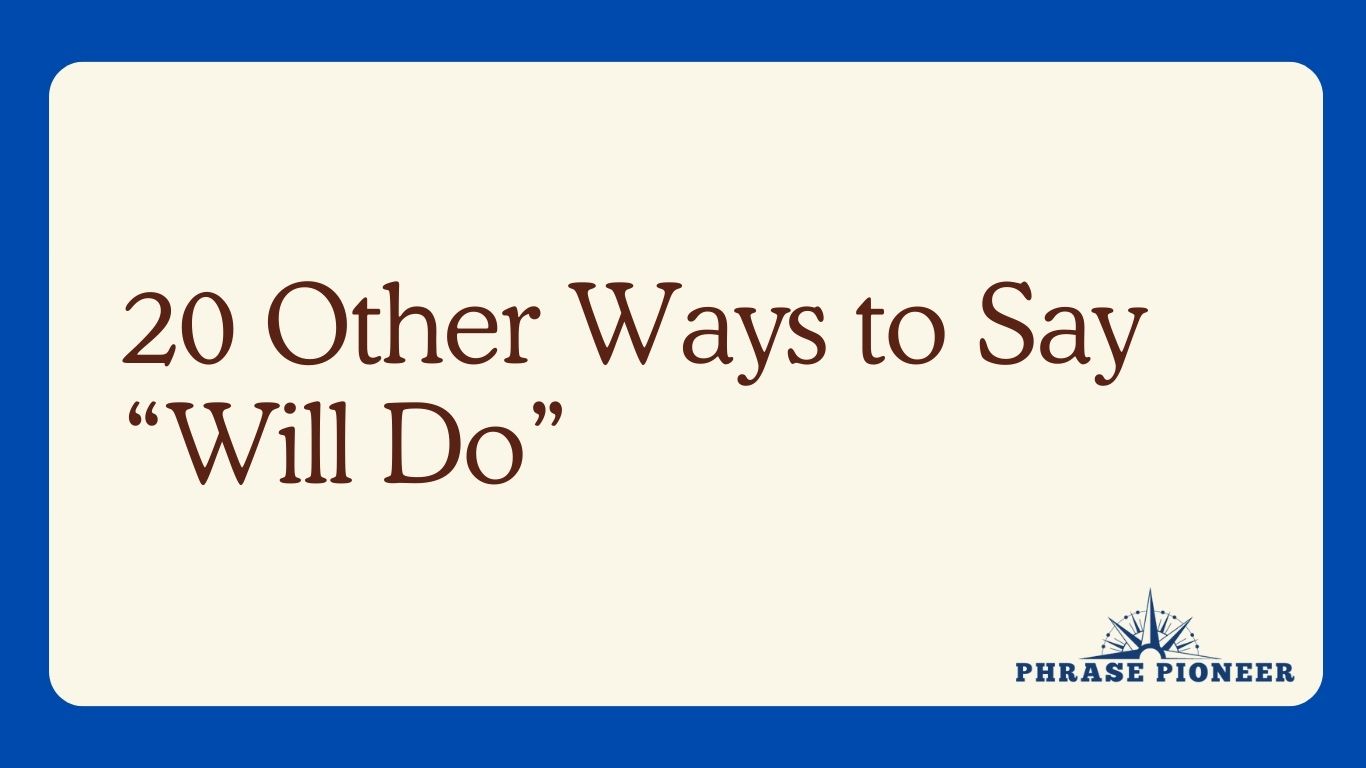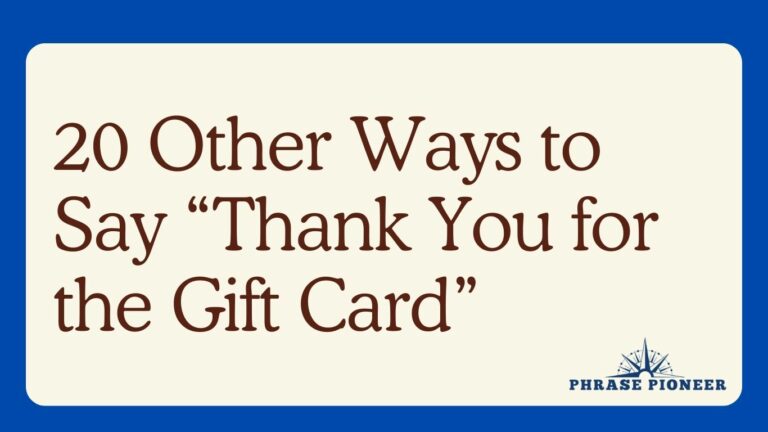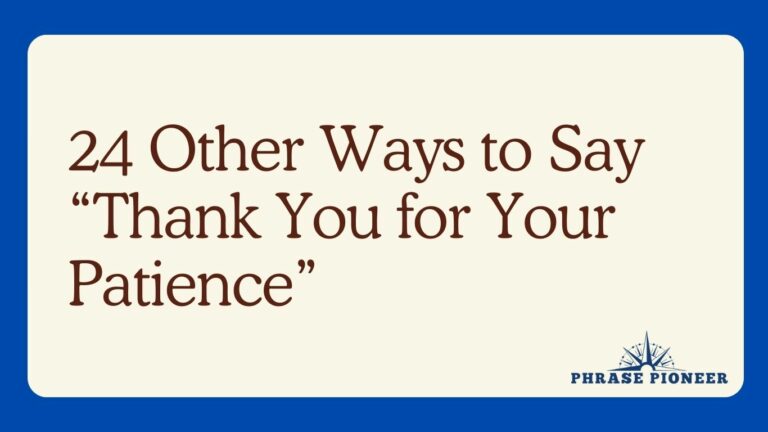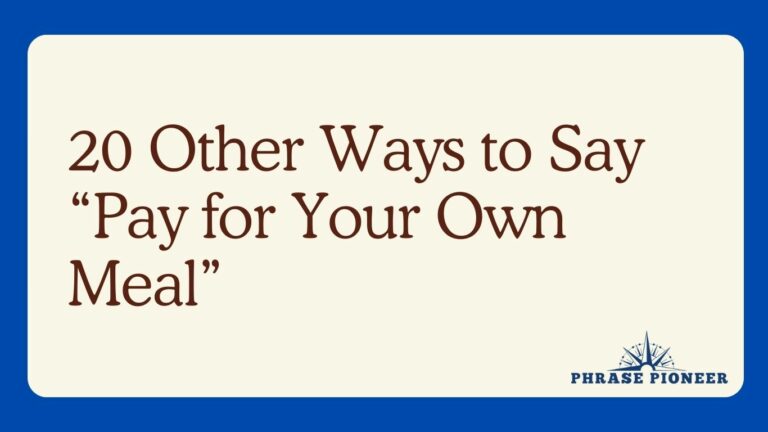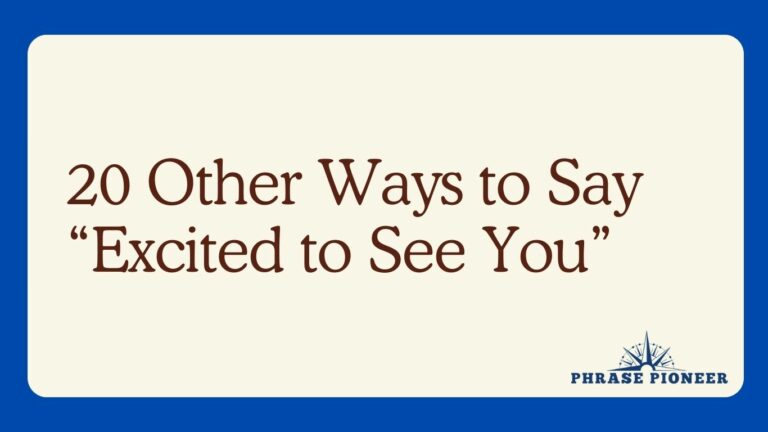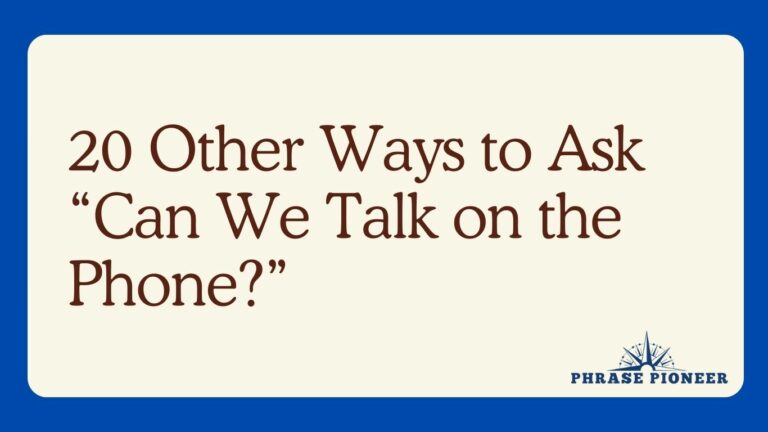20 Other Ways to Say “Will Do”
“Will do” is a concise response that confirms the intention to complete a task or adhere to a request.
It’s clear and unambiguous, but there are many other expressions that can be used to convey agreement or acknowledgment in fulfilling a request.
Whether you’re looking for a professional confirmation or a casual acknowledgment, exploring different ways to say “will do” can help you respond appropriately in various situations.
Below are 20 alternative phrases to “Will do,” each suited for specific contexts and levels of formality.
Formal Acknowledgments
In professional settings, where the tone of your response carries weight, these formal alternatives communicate your compliance with respect and seriousness.
1. Certainly, I will ensure it is completed.
- Example: “Certainly, I will ensure it is completed before the deadline.”
- Explanation: Indicates a strong affirmation and personal responsibility in accomplishing the task.
2. I shall take care of it immediately.
- Example: “Thank you for bringing it to my attention. I shall take care of it immediately.”
- Explanation: Reflects both urgency in addressing the task and a formal tone in the response.
3. Consider it done.
- Example: “Consider it done; I’ll handle the arrangements for the conference.”
- Explanation: This phrase denotes full commitment to completing the task, expressing confidence.
Confident Affirmations
When you want to demonstrate assurance and capability in responding to a request, consider these confident expressions.
4. Absolutely, it’s under control.
- Example: “Absolutely, it’s under control. The report will be on your desk by lunchtime.”
- Explanation: A positive and assertive response that gives assurance that the task will be accomplished efficiently.
5. Affirmative, action will be taken.
- Example: “Affirmative, action will be taken to resolve the client’s issue before close of business.”
- Explanation: Often used in military or formal operations, this signals clear agreement and immediate response.
6. Understood, I’m on it.
- Example: “Understood, I’m on it. I’ll start working on the presentation right away.”
- Explanation: Communicates not only acknowledgement but also initiative in starting on the task.
Polite Expressions
When politeness is key, these phrases can soften your response while still signaling that you have accepted the request.
7. I’d be happy to.
- Example: “You need someone to volunteer for the event? I’d be happy to assist.”
- Explanation: This response exudes willingness and pleasure in taking on the task.
8. Yes, I can accommodate that.
- Example: “You’d like the files sorted by the end of the day? Yes, I can accommodate that.”
- Explanation: Shows compliance with a positive attitude, using a courteous and service-oriented tone.
9. Of course, it will be my pleasure.
- Example: “You need extra support with the project? Of course, it will be my pleasure.”
- Explanation: Indicates readiness to fulfill the request with a hint of delight.
Casual Confirmations
In an informal setting or when speaking with friends, a casual tone is often more fitting.
10. Sure thing.
- Example: “You need a ride to the airport? Sure thing, I’ve got you covered.”
- Explanation: A laid-back way of agreeing to a request with a positive vibe.
11. No problem.
- Example: “Can you help me move this weekend? No problem, count me in.”
- Explanation: A breezy and agreeable response that reassures the requestor their needs will be met.
12. Yeah, got it.
- Example: “Remember to bring snacks for the road trip. Yeah, got it.”
- Explanation: An informal acknowledgment indicating that the message has been received and will be acted upon.
Quick and Lively Assurances
Sometimes, a brief and energetic reply is all you need to communicate your intention to follow through.
13. You got it!
- Example: “Could you turn up the heat a little? You got it!”
- Explanation: A spirited and friendly way to agree to a request.
14. On it!
- Example: “We need someone to jump on this issue right away. On it!”
- Explanation: Conveys a sense of urgency and enthusiasm in taking on a task.
15. Roger that.
- Example: “Make sure to update the team on your progress. Roger that.”
- Explanation: A colloquial, yet lively response, often used to indicate clear understanding and compliance.
Pledging Commitment
To show dedication and a sense of duty in your response, these expressions demonstrate a commitment to fulfilling the task.
16. It’s on my agenda.
- Example: “Please review the new client portfolio. It’s on my agenda for today.”
- Explanation: Suggests that the task is a priority and has been scheduled.
17. All set to go.
- Example: “Can you look over my article before submission? All set to go; just send it my way.”
- Explanation: Indicates readiness or preparation to take on a task.
18. I pledge my commitment to…
- Example: “I pledge my commitment to complete this project to the best of my ability.”
- Explanation: A formal promise or expression of dedication to carrying out the task at hand.
Humorous or Light-Hearted Responses
A touch of humor can sometimes be the perfect way to accept a task, especially among friends or in a light-hearted atmosphere.
19. Can do, Captain!
- Example: “The files need to be sorted alphabetically – can you handle that? Can do, Captain!”
- Explanation: Adding a playful military twist to compliance, this phrase is both humorous and affirmative.
20. Consider me your genie; your wish is my command.
- Example: “I need some help troubleshooting this. Consider me your genie; your wish is my command.”
- Explanation: A whimsical way of saying that you will do what has been asked, likening yourself to a genie who grants wishes.
Conclusion
Various contexts and relationships call for different tones and phrases when agreeing to perform a task or duty.
From formal workplace interactions to casual conversations, having an array of responses like the 20 provided above can help you convey agreement and readiness in an appropriate and effective manner.
Whether you opt for a pledge of commitment or a light-hearted affirmation, tailoring your language to the situation fosters effective communication and can even strengthen your rapport with others.

